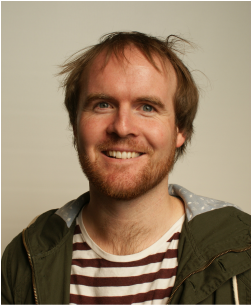
The bass notes from Jay Z's 99 Problems linger in the air as the lights dramatically fade at the stadium. A roar from the crowd erupts, as we spontaneously feel that our anticipation is about to be replaced with joy. Suddenly, the synth and chimes of Mylo Xyloto build to a climax and the atmosphere explodes into a mind-boggling display of lights, lasers and confetti cannons.
Coldplay have arrived and perform a lengthy concert that engages all of our senses for the next two hours, finally finishing with a dramatic flourish that leaves us all both satisfied yet outrageously wishing that this show could continue. We drive home from the concert, talking about our highlights of the evening and feeling that this show had been specially created just for us.
Twelve hours later, and I'm sitting in our church building for our usual Sunday service. We sing the same songs, with the same level of reserved gusto - a far cry from the anthemic choruses I was reveling in the night before. The musicians leave the stage and there is an awkward transition as the next speaker is not quite prepared to deliver the weekly notices. He stands there with his notes in hand, sharing the updates with us.
The preacher gets up to preach and does not seem to have enough engaging illustrations this week. He lingers on a point for a few minutes too long. My mind begins to wander back to the night before, a far cry from what I am experiencing in this weekly service. Last night, I was electrically present and engaged. This morning, I am disinterested and - dare I say it - bored.
Licensed to Bore
Boredom is a feeling that all of us have experienced yet is difficult to explain. Margaret George describes boredom as "unmanning", a process that transforms us into "a great nothing who does nothing". James Bond's creator, Ian Fleming, writes of 007 that, "boredom, and particularly the incredible circumstance of waking up bored, was the only vice that Bond utterly condemned". Hard liquor, dangerous women, fast cars and death-defying missions - Bond was up for all of these. But boredom, the feeling of missing out on life and an ever-pervading sense of grayness, was too much for Britain's greatest spy.
It seems as though the Western population will do anything to escape boredom. Research from mental health expert McWelling Todman speculates that teenage boredom leads to greater alcohol and substance abuse, gambling and poor relationships. Even amongst those whose lives appear to "have it all together", boredom is often the motivator behind changing relationships, career or heading on an OE. None of these experiences is bad in of themselves, but it is an interesting and unique period of history we live in when boredom is seen as the cause of these shifts.
Contemporary Christian culture can also see boredom as a great evil and something to be avoided at all costs. Missions trips can be promoted as a Christian Indian-Jones escapade, worship must be high energy and engaging at all times, sermons must be the perfect balance of humor, illustration and application to ensure the congregation's mind doesn't wander for a second.
As an ex-Youth Pastor, I know I was guilty at times of feeling that I had to make Jesus and the gospel evermore exciting, to compete with the engaging youth culture. Without realising it, I was communicating a message that I unconsciously believed in - if I was bored, something was fundamentally wrong with life.
The Luxury of the Mundane
In my experience, there are two types of boredom. One is the boredom of having nothing to do and can usually be fairly easily fixed by getting up and doing something! The other type of boredom, however, is much more pervasive and is a general feeling that my life is not measuring up to the lives I see around I me.
Cultural critic Mark Sayers' describes this boredom by saying, "We end up trading our reality for a simulation of reality in which happiness and fulfillment are always just out of reach. We become detached from our actual lives, reaching always for simulations, mirages of real life that can never be reached." This fake-life that we yearn for always seems better than our current real existence, and leads to shopping sprees, religious highs, overseas adventures and conference-chasing Christianity - often in an effort to escape the boredom.
In our boredom-induced blindness, we forget that this feeling is a luxury good that is amplified by our wealth and abundance of options. Much of the world does not have the option to travel to South-East Asia to add variety to their lives. The idea of changing a career because you are bored in it would not make rational sense to the four billion people living on less than $2 a day. Yet in our culture of plenty, this pervasive boredom appears to exist because of our wealth and opportunities, paralysing us from enjoying what we have by drawing our attention to what we don't.
Lessons from the Gray-Lands
A few years ago, I went through a bad run of health that rendered me fairly useless for a few months. During this period, I couldn't stomach any food apart from bread and water, couldn't concentrate to watch a movie or even read a book, couldn't muster the energy to walk further than a few blocks and didn't have the social buzz to connect with friends. My days were long and empty and were definitely coloured with a strong hue of gray. I was bored - yet in that boredom, I slowly learnt a valuable lesson.
Life is not about me and my self-actualisation, my happiness and health. As good as those things are, they do not fulfill. Ultimately, life is about God and His purposes, and my life is a response to that, slowly walking, day-by-day in the path of discipleship.
Although that sounds like a pithy fridge-magnet saying, my boredom helped to cement in my heart that our calling as Christ-followers is to seek first His Kingdom, not our excitement. My boredom taught me that life is not always a series of ever-increasing fireworks and adventure, but the routine and mundane are a necessary part of life.
It reminded me that Jesus spent the first thirty years of his life in a fairly repetitious role, in a fairly boring town - and that was a key part of Jesus learning obedience. My boredom reminded me that Paul's life was a mixture of jaw-dropping adventure and mind-numbing imprisonment and journey.
Be Content
More than this, my experiences taught me that the opposite of boredom is not adventure and excitement, but contentment. It is not my circumstances or environment that needed to be changed, but my heart. When we re-orientate ourselves around God (instead of trying to force God to orbit us), we discover the secret of contentment and begin to notice the beauty and grace that is present in God's glory-soaked earth.
This lesson is one that I must be re-taught and is one that cannot be absorbed in a life devoted to the immediate and casual. Instead, I must continually remind myself that following Jesus is (to quote Eugene Peterson's Nietzschean book title) "a long obedience in the same direction," and is a pilgrimage that will involve soaring mountain top moments, crushing dark valleys - but also long, steady walks on the plains of the everyday.

Jeremy Suisted is from Cambridge NZ a Creative Consultant and was once voted in the Top Six Waikato’s Hottest Muffin Bakers.

Jeremy Suisted is from Cambridge NZ a Creative Consultant and was once voted in the Top Six Waikato’s Hottest Muffin Bakers.